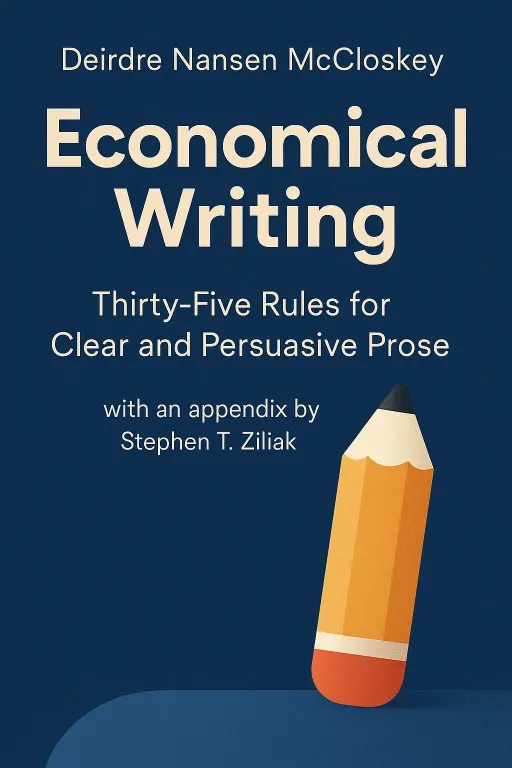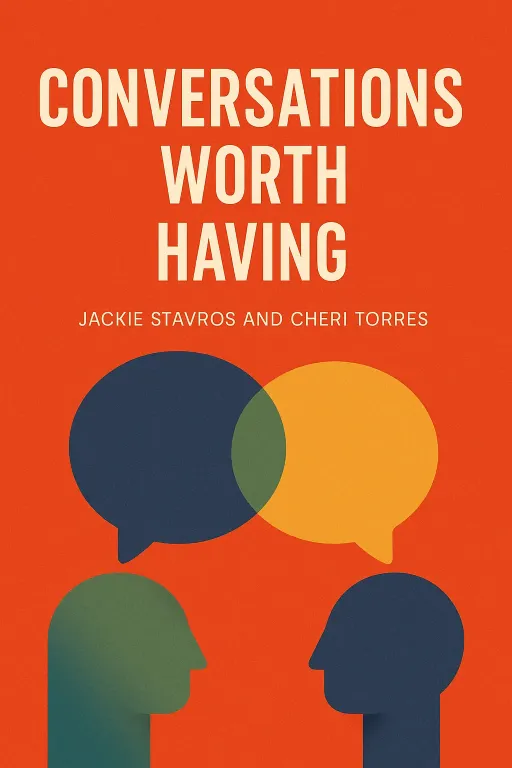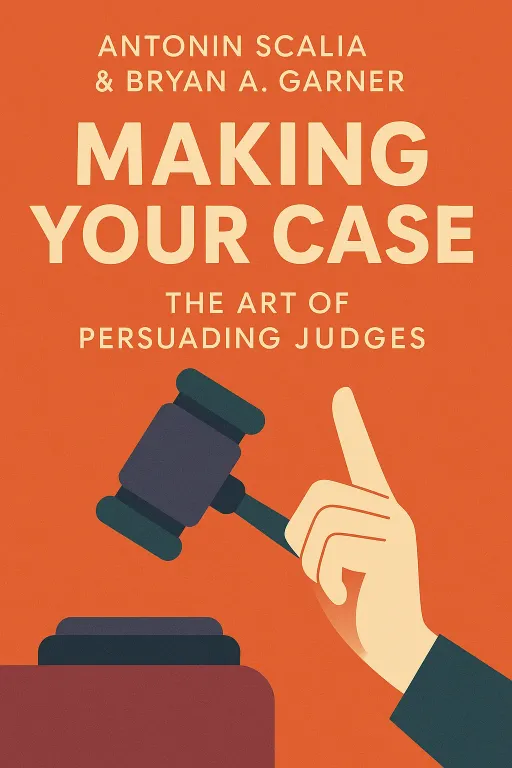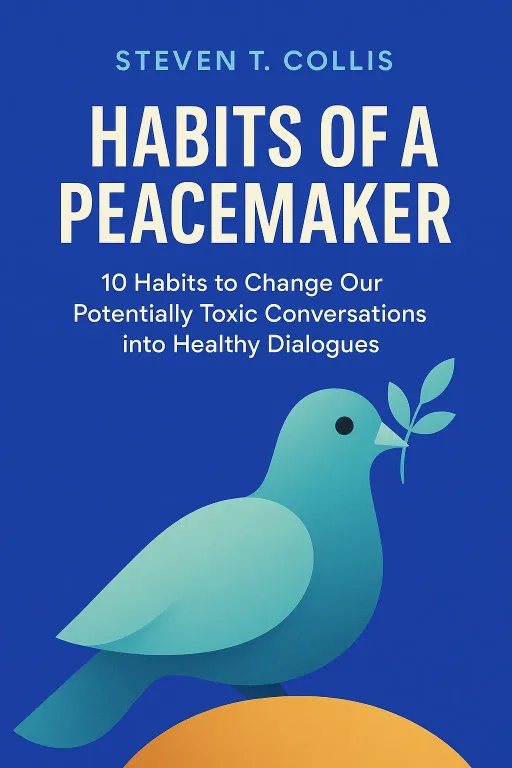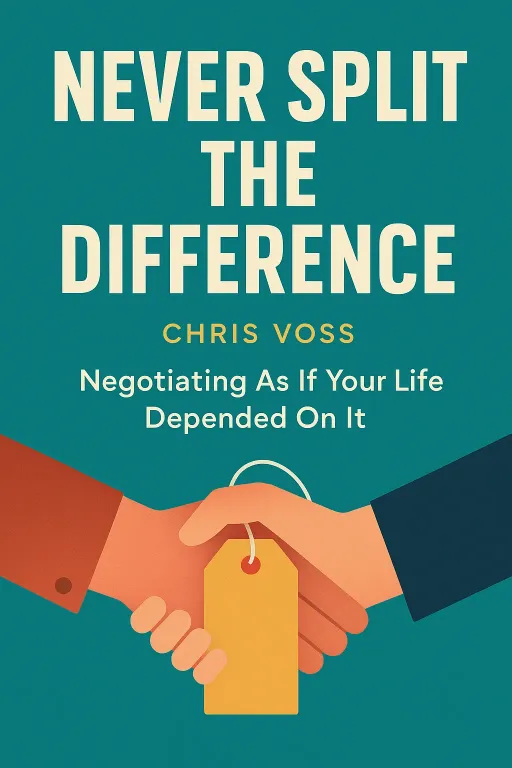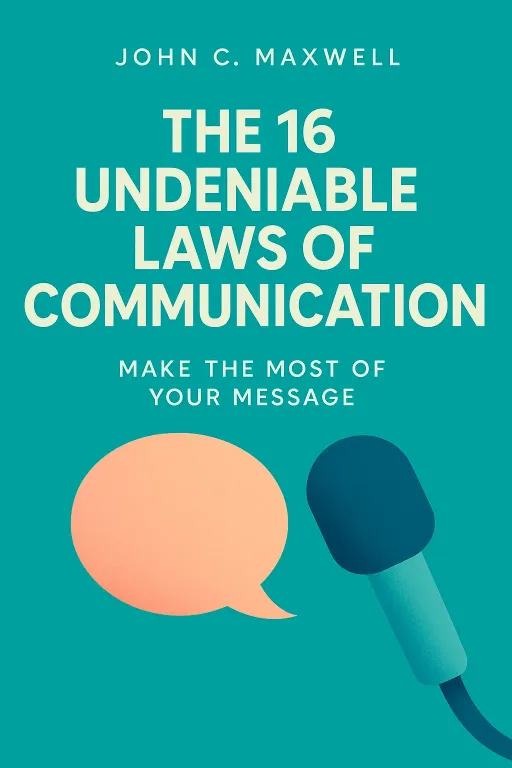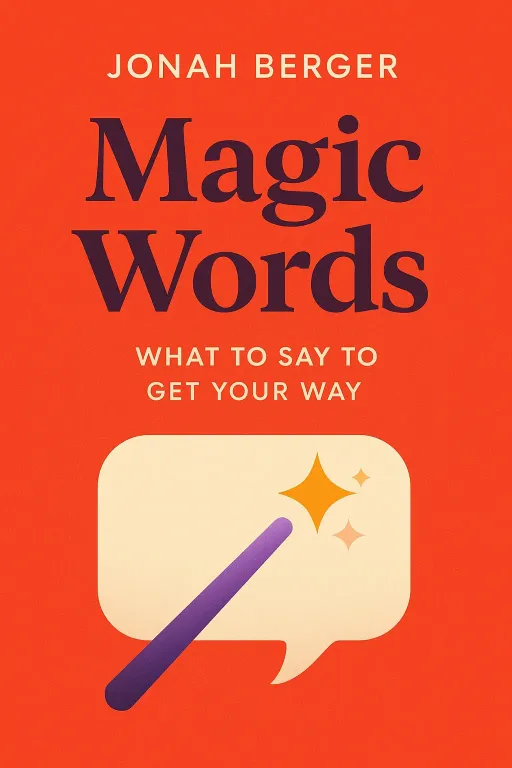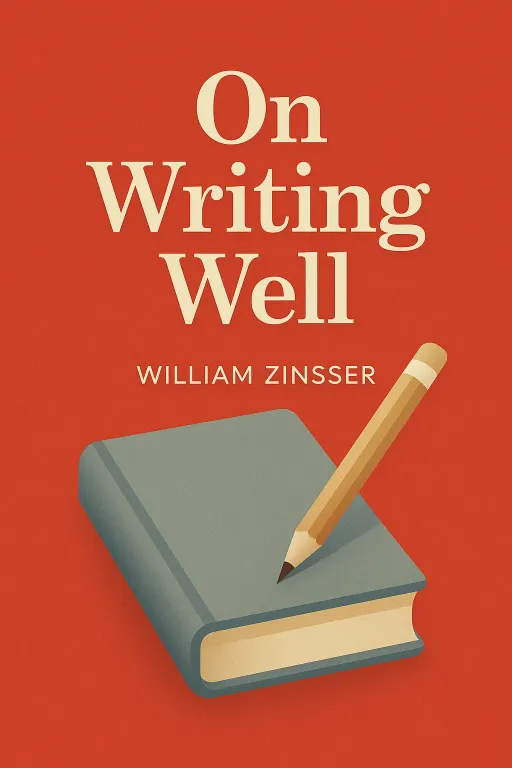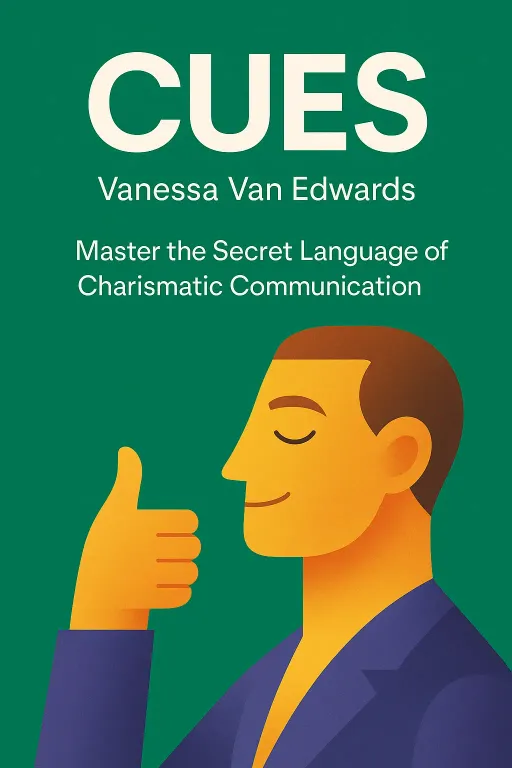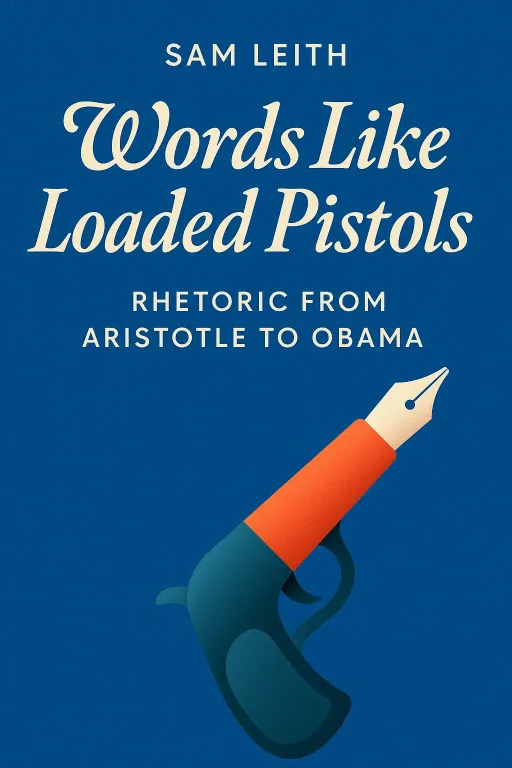
The Persuasion Playbook
12 minRhetoric from Aristotle to Obama
Golden Hook & Introduction
SECTION
Michelle: Most of us think we hate slick politicians and their empty words. But what if the most powerful and dangerous idea in the world isn't the lie, but the beautifully told truth? Mark: Whoa, that's a heavy start. What do you mean? Michelle: I mean, what if the skill we distrust the most—the ability to persuade with words—is the very same skill that built our entire society, from ancient democracies to modern movements? Mark: Okay, you have my attention. It feels like we're constantly being sold something, whether it's a product or a president. And the better the sales pitch, the more my guard goes up. Michelle: That's the central question in Sam Leith's brilliant book, Words Like Loaded Pistols: Rhetoric from Aristotle to Obama. Mark: And Leith is the perfect person to write this. He's not some dusty academic; he's a literary journalist who's judged major book prizes. He writes with this sharp, witty style that makes ancient Greek concepts feel like they're ripped from today's headlines. The book is widely acclaimed for making this dense topic so incredibly accessible. Michelle: Exactly. And he starts by revealing the hidden architecture behind every persuasive argument you've ever heard. It’s a secret blueprint that’s been used for over two thousand years.
The Hidden Architecture of Persuasion: The Five Canons of Rhetoric
SECTION
Michelle: Leith breaks down this blueprint into what the classical world called the five canons of rhetoric: Invention, Arrangement, Style, Memory, and Delivery. Mark: Hold on. That sounds like a syllabus for a class I'd want to skip. How is this relevant to me arguing with my partner about where to go for dinner? Michelle: (Laughs) It’s completely relevant! Forget the list for a second. Let's look at a masterclass in persuasion from a very unexpected source. The book uses an incredible example: Satan's speech in John Milton's epic poem, Paradise Lost. Mark: Wait, Satan? As in, the devil? What does he have to do with a PowerPoint presentation? Michelle: Everything! Think about it. He’s just been defeated, cast out of Heaven, and is lying in a lake of fire. His troops are demoralized. It’s the ultimate crisis communications moment. What does he do? He uses the five canons perfectly. Mark: Okay, I'm listening. How? Michelle: First, Invention. That’s not about making things up; it’s about discovering the best possible argument. Satan doesn't just cry about his loss. He invents a whole new narrative. He looks around at Hell and says, "The mind is its own place, and in itself can make a Heaven of Hell, a Hell of Heaven." He reframes total defeat as an opportunity for freedom. Mark: "Better to reign in Hell, than serve in Heaven." I know that line. Michelle: Exactly! That’s pure rhetorical invention. He found the one argument that could turn despair into defiance. Then comes Arrangement—how you structure your speech. He doesn't just start yelling orders. He begins with empathy, addressing his second-in-command, Beelzebub, sharing in their misery. He builds a connection before he makes his pitch. Mark: So he makes them feel understood first. That's a classic leadership move. Michelle: A classic rhetorical move! Only after establishing that connection does he move to his call to action: eternal war against God, but not with force. With guile. And his Style? It’s epic. It’s grand. He uses powerful, inspiring language that makes his followers forget they're in Hell and feel like they're on the verge of a great new enterprise. Mark: Wow. So the devil's greatest trick wasn't a lie, but a perfectly structured speech? That's terrifying. It really shows how rhetoric is a tool, completely separate from morality. Michelle: That’s the core of the book. The tools are neutral. It’s the user who decides their purpose. And that structure, the Arrangement part, is something the Romans perfected. They had a six-part model for the perfect speech. Mark: Six parts? Okay, now it really sounds complicated. Michelle: But it’s not! You know it instinctively. It starts with the exordium—the introduction, where you win the audience over. Then the narration, where you lay out the facts of the case, but framed in your favor. Then division, where you state what you and your opponent agree on, and where you disagree. Mark: That’s smart. It narrows the battlefield. Michelle: Precisely. Then comes the proof—your arguments. Then refutation—where you tear down your opponent's arguments. And finally, the peroration—the grand, emotional conclusion that drives your point home. Mark: Give me an example. Who did this in the real world? Michelle: The master was Cicero. In 63 BC, a senator named Catiline was plotting to overthrow the Roman Republic. Cicero got wind of it, walked into the Senate where Catiline was sitting, and just unleashed on him. He used that exact six-part structure to systematically expose the plot, isolate Catiline from his allies, and basically talk him into fleeing the city in shame. It was a political takedown delivered through a perfectly arranged speech. Mark: So this isn't just theory. It’s a weapon. Michelle: That’s why the book is called Words Like Loaded Pistols.
The Three Battlegrounds of Argument: Deliberative, Judicial, and Epideictic Rhetoric
SECTION
Mark: Okay, so you have the structure of the argument. But the book says the timing is just as important. This idea of fighting in the past, present, or future is fascinating. It feels like a rhetorical time machine. Michelle: That’s a perfect way to put it. Aristotle was the one who first identified this. He said there are three branches of oratory, and they're all defined by time. The first is Judicial, or forensic, rhetoric. It’s all about the past. Think of a courtroom. The core questions are: What happened? Who is to blame? It's about judgment. Mark: Right, like in a murder trial. The whole thing is about reconstructing past events. Michelle: Exactly. The second is Deliberative rhetoric. This is the language of politics. It’s all about the future. What should we do? Should we pass this law? Should we go to war? It’s about choice and future action. Mark: And the third one? Michelle: The third is Epideictic rhetoric. This is about the present. It’s the rhetoric of praise or blame. Think of a wedding toast, a funeral eulogy, or a speech dedicating a monument. Its purpose is to affirm shared values in the here and now. Mark: A eulogy is a great example. You're not trying to decide on a future action or assign past blame. You're just trying to celebrate a person's life in the present moment. But how does knowing this help you win an argument? Michelle: Because skilled speakers strategically shift between these tenses to control the narrative! This is one of the most powerful insights in the book. Leith points to Martin Luther King Jr.'s "I Have a Dream" speech as a masterclass in deliberative, future-focused rhetoric. Mark: Tell me more. Michelle: King acknowledges the past injustices—the "bad check" America gave to its Black citizens. That's a nod to judicial rhetoric. But the soul of the speech, the part that moves everyone, is pure deliberative. The famous refrain, "I have a dream," is a vision of the future. He’s not just assigning blame for the past; he's painting a vivid, irresistible picture of what America could be. Mark: And that's why it's so inspiring! It gives people something to move toward, not just something to be angry about. But what about when speakers mix them up in a more manipulative way? The book mentions that scene from the movie A Few Good Men. Michelle: Yes! It’s a perfect illustration. The lawyer, played by Tom Cruise, is using judicial rhetoric. His only question is about the past: "Colonel Jessep, did you order the Code Red?" It's a simple question of fact. Mark: But Jack Nicholson's character, Jessep, refuses to answer it directly. Michelle: Exactly. He tries to change the battlefield of time. He shifts to epideictic rhetoric, the rhetoric of praise and blame. He says things like, "I have a greater responsibility than you can possibly fathom." He’s basically saying, "In the present, I am a hero, and you are not." Then he shifts to deliberative, future-focused rhetoric: "My existence, while grotesque and incomprehensible to you, saves lives." He’s trying to change the argument from "What did you do?" to "What should we do to stay safe?" Mark: And his big, famous line, "You can't handle the truth!" is him trying to say the rules of the past don't apply to him because of the importance of his future mission. Michelle: Precisely. And it's his downfall. By refusing to engage on the judicial battlefield of the past, he implicitly admits his guilt. He loses control of the argument because he couldn't control its tense.
The Speaker as the Message: Ethos, Pathos & Modern Mistrust
SECTION
Michelle: And that failure of Jessep's brings us to the most crucial, and most modern, part of this: the speaker themselves. It’s all about what Aristotle called the three persuasive appeals: Ethos, Pathos, and Logos. Mark: I remember these from school. Ethos is your credibility, your character. Logos is logic, the facts. And Pathos is emotion. Michelle: Right. And for most of history, Ethos was paramount. A speaker had to be seen as a good person for their words to have weight. But Pathos, the appeal to emotion, can be incredibly powerful, and sometimes, incredibly cheesy. The book gives the perfect example: Richard Nixon’s 1952 "Checkers" speech. Mark: Oh, I've heard about this. He was accused of taking illegal campaign funds, right? Michelle: Yes, and his career was on the line. So he goes on TV and gives this speech. He uses a bit of Logos, laying out his finances. But the masterstroke is pure Pathos. He says he did receive one gift—a little black-and-white cocker spaniel dog that his six-year-old daughter Tricia named Checkers. And he says, "And you know, the kids, like all kids, love the dog, and I just want to say this, right now, that regardless of what they say about it, we’re gonna keep it." Mark: (Laughing) No way. He used a puppy to save his political career. Michelle: He did! The country melted. People sent dog food and leashes to the Republican headquarters. It was a nakedly emotional appeal, and it worked perfectly. But here's the modern paradox Leith points out. We fall for that, yet we’ve become deeply suspicious of anyone who is too good with words. Mark: You’re talking about Barack Obama. Michelle: Absolutely. Leith argues that in the 2008 election, his opponents launched what he calls a "war on words." They attacked Obama for being a good speaker. Mark: Right! I remember that. "He's just a person of words," or "That's just empty rhetoric." Why did that attack work? Why is being eloquent suddenly a bad thing? Michelle: Because in our modern culture, we have this deep-seated belief that plain, unadorned speaking is more authentic and truthful. We associate elaborate language with deception. So, being anti-rhetoric has become its own incredibly powerful rhetorical strategy. Mark: That's a total mind-bender. You're using rhetoric to attack rhetoric. Michelle: It's the ultimate trick! A politician can say, "My opponent is using fancy, empty words and well-rehearsed lines. But me? I’m just a plain-spoken guy, telling you the simple truth as I see it." It’s a direct appeal to their own Ethos—their own character—by attacking their opponent’s Style. Mark: So the very skill that made Obama so compelling was also his biggest vulnerability. People heard him speak and were moved, but a little voice in their head, planted by his opponents, was whispering, "Don't trust it. It's just words." Michelle: That’s the tightrope of modern leadership. You have to be a great communicator, but you can't seem like you're a great communicator. It’s a fascinating and dangerous paradox.
Synthesis & Takeaways
SECTION
Michelle: So, when you pull it all together, what Leith shows us is that rhetoric isn't just about making pretty speeches. It's the underlying operating system of our social world. It’s the architecture of how we convince, inspire, and even manipulate each other. Mark: It’s everywhere. It’s in the ad that makes you want a new phone, the movie speech that gives you chills, and the way a CEO rallies their company after a bad quarter. Michelle: Exactly. It can be used by Satan to rally fallen angels in Hell, by Cicero to save a republic from a traitor, and it's at the very heart of why we elect, and simultaneously distrust, our modern leaders. The principles are ancient, but the game is being played right now, all around us. Mark: It makes you listen differently. The next time you hear a politician speak or even get into a simple argument, you start to ask: What are they really building with their words? What battlefield of time are they trying to get me to stand on? And most importantly, are they appealing to my head, my heart, or my trust? Michelle: It’s a powerful lens to see the world through. We’d love to hear what you think. What’s the most persuasive speech you’ve ever heard, and now, thinking about it, why do you think it worked? Let us know on our socials. Michelle: This is Aibrary, signing off.
